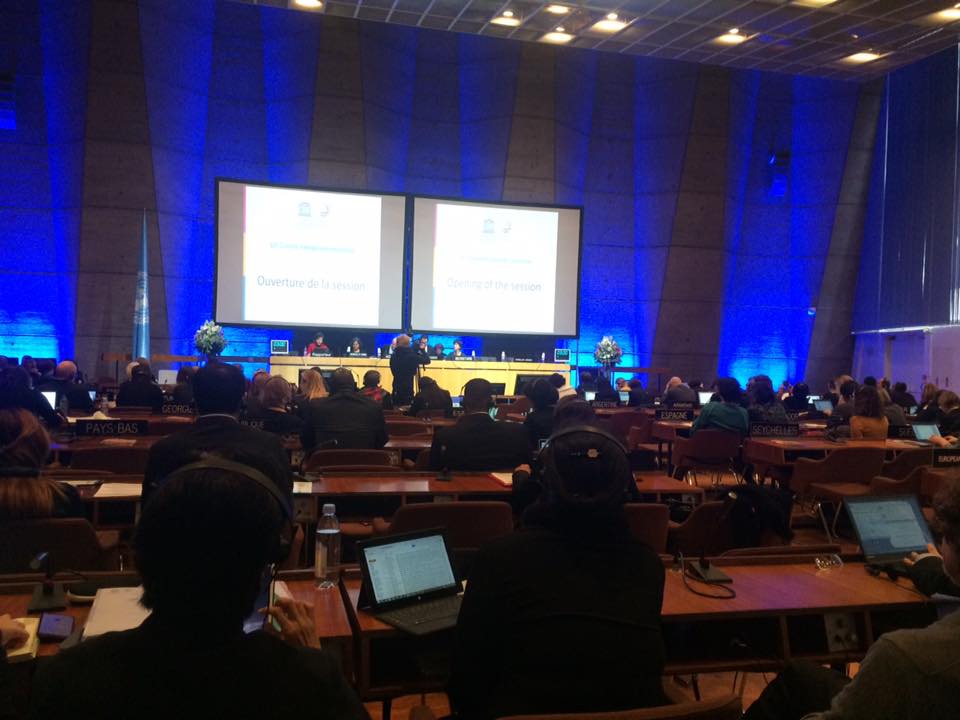Over forty representatives of civil society organisations were invited as observers to the Intergovernmental Committee (IGC) For the 2005 Convention on the Protection and Promotion of the Diversity of Cultural Expressions . The IGC Tenth Ordinary Session took place at UNESCO Headquarters, Paris 12-15 December 2016. Following the adoption of 17 different decisions, including the new Article 11, civil society organistaions will from 2017 onwards have a formal role i the procedures.
Dr. Diane Dodd, from IGCAT, attended the meeting on behalf of the International Federation of Arts Councils and Culture Agencies (IFACCA) and noted that during an informal exchange between the NGOs and the Bureau of the session different NGOs a number of concerns were raised that include:
1. Representation : having the means to be present is important and yet many people that need to be present, can’t afford to be
2. Freedom of expression : it was noted that in many national legislation there are still important restrictions to freedom of creation
3. Awareness : the Convention is not well known and therefore it is still an abstract text and needs translating into “real use”
4. Inequity : particularly North-South
5. Free-trade agreements : how the movement of goods and services should be treated taking into account respect for cultural diversity
6. IFCD – fundraising efforts have increased and yet funds received have decreased – plus unsustainability of projects (durability of projects is weak when aid ends). It was noted that the fund is only able to fund 10% of projects that are submitted each year.
7. Digital challenge: regulations, standardisation, dumping.
8. Need to work across other sectors : ensuring cultural diversity is relevant to all
In the informal dialogue with the bureau, Dr. Diane Dodd noted similar calls to those expressed in the concluding session of the IFACCA World Summit of Arts and Culture. At this world meeting in Malta, voices had also called for the need to inspire new cultural leaders and make the arts and culture relevant within other sectors.

